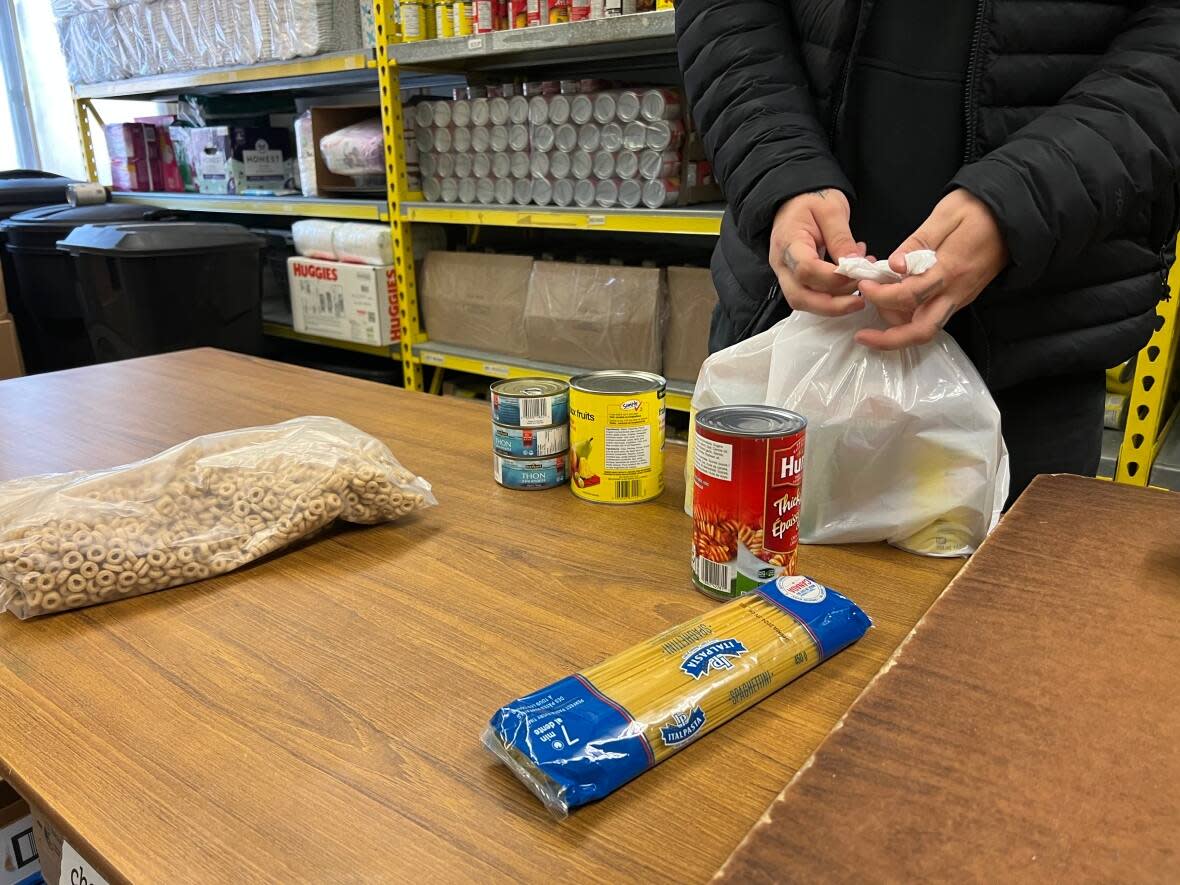Income assistance system a 'deep cruelty,' head of Feed Nova Scotia tells MLAs

Groups trying to help people struggling to feed themselves or keep a roof over their heads are urging the Houston government to do more to help poor Nova Scotians.
They say the province needs to immediately increase the minimum wage to $15 per hour and offer those who receive income assistance a substantial raise in their basic allowance.
The executive director of Feed Nova Scotia, the organization that supplies food banks across the province, put it bluntly to a legislature committee on Tuesday.
"There is a deep cruelty in leaving thousands of Nova Scotians on income assistance to live a life of damaging poverty," Nick Jennery told the standing committee on Community Services.

Christine Saulnier, the Nova Scotia director of the Canadian Centre for Policy Alternatives, was just as critical of efforts taken so far by the governing Progressive Conservatives to help those who are most struggling with rising prices.
"People are starving," said Saulnier. "We shouldn't need food banks, we shouldn't need shelters."
"This discussion is just one more red flag about the inadequate, under funding of our public systems. I don't know what justifies it," she said. "You have the power and authority, and fiscal capacity to act, please act."

Christina Carter, executive director of Chebucto Connections, made a similar plea to the province to make policies more humane to those who need help.
"Our work is getting tougher every day with the rising cost of living," Carter told the all-party committee. "Last week alone we had a single parent diagnosed with cancer. Their EI [employment insurance] benefits ran out and they had to wait 30 days after their last EI payment to apply for social assistance forcing them into rental arrears and receiving an eviction notice.
"A senior with health issues [is] contemplating assisted suicide because they just don't see another way out of the struggle."

Nourish Nova Scotia's executive director, Lisa Roberts, told the committee of the paltry amount schools are given to fund food programs to feed hungry students.
"The publicly funded school food budget in Nova Scotia amounts to about $20 per student per school year," said Roberts. "That is not enough for a robust breakfast program, let alone lunch."
The provincial government has said it will bring in a provincial lunch program, but it's waiting on the federal government to fulfill its promise to make money available for a national school lunch program.

Deputy Minister of Community Services Tracey Taweel, who sat alongside the group representatives as a committee witness, listed several recent announcements by the Houston government aimed at cushioning the blow for Nova Scotians struggling with inflation. Examples included beefing up the province's Heating Assistance Rebate Program, a $250 one-time payment to income assistance clients, a $1,000 one-time payment to foster families and $3 million in extra funding to food banks.
"Over the last few months, significant investments have been made to address and prevent homelessness, develop supportive housing, reduce food insecurity and increase supports to families with children," said Taweel. "There is no question that we have been living through extraordinary circumstances such as the COVID-19 pandemic, Hurricane Fiona and an affordable housing shortage that continues to impact our most vulnerable citizens."
Taweel also promised more aid soon.
"In the next few weeks, [the] government will make changes to the rent supplement program to provide more funding to income assistance clients to better help them meet their housing-related needs," she told the committee.
Outside the meeting she told reporters the change would mean an extra $200 to $300 dollars a month to recipients to pay their rents. Asked why the current government had not increased the basic rate for those on income assistance, Taweel said the government "works hard to strike a balance" between "competing priorities" and government challenges.
During the committee hearing, Saulnier dismissed that line of reasoning.
"It's not about balancing priorities," said Saulnier. "We have people who own yachts in this province while people are living in tents. You need more tax revenue.
"There is more tax revenue to be had. You need to cut spending. We can make suggestions around that. You need to act, and you need to act quickly."
MORE TOP STORIES


